In this press conference, González Urrutía and Machado, in addition to the parties that make up the PUD, signed a document in which they pledged to begin a process of “democratization” of the country in case the elections win.
International
‘Progress destroying nature’: Brazil dam fuels fears for river
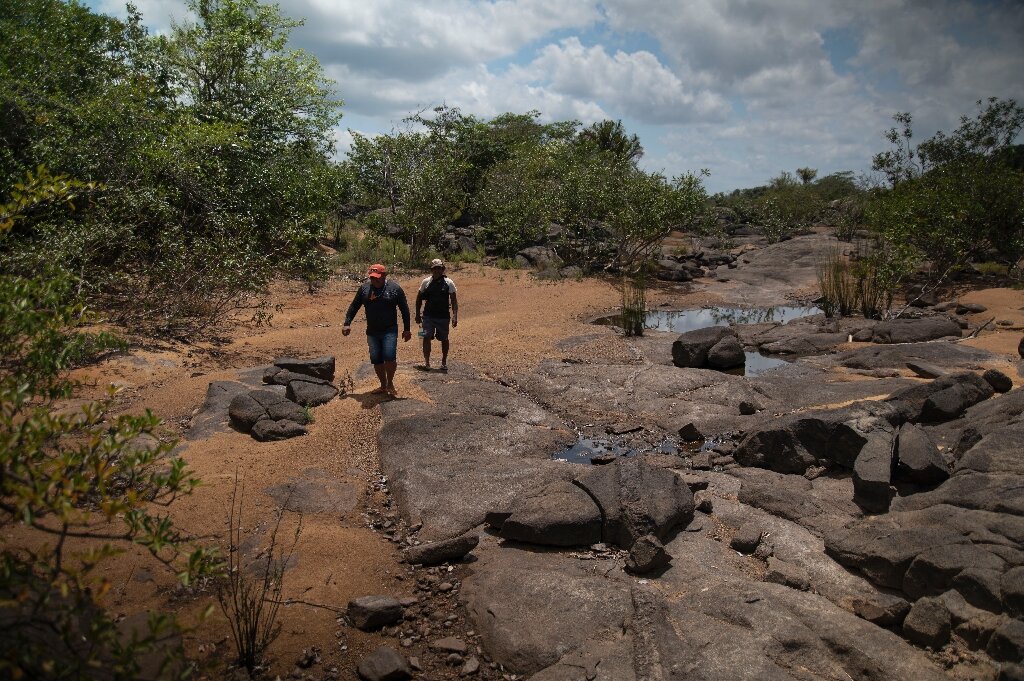
| By AFP | Carlos Fabal with Joshua Howat Berger in Rio de Janeiro |
Holding a dead fish, Junior Pereira looks grimly at a puddle that used to be part of Brazil’s Xingu river, a mighty Amazon tributary that has been desiccated here by the massive Belo Monte hydroelectric dam.
Pereira, a member of the Pupekuri Indigenous group, chokes up talking about the impact of Belo Monte, the world’s fourth-biggest hydroelectric complex, which locals say is killing one of the most biodiverse regions on Earth and forcing them to abandon their way of life.
“Our culture is fishing, it’s the river. We’ve always lived on what the river provides,” says Pereira, 39, who looks like a man trapped between two worlds, wearing a traditional Indigenous necklace and a red baseball cap.
He gazes at the once-flooded landscape, which Belo Monte’s water diversion has made a patchwork of puddles dotted with stranded fish.
“We’ve lost our river,” he says.
“Now we have to buy food in the city.”
‘Like a permanent drought’
Stretching nearly 2,000 kilometers (1,250 miles), the Xingu ebbs and flows with the rainy season, creating vast “igapos,” or flooded forests, that are crucial to huge numbers of species.
They are also crucial to an estimated 25,000 Indigenous people and others who live along the river.
Belo Monte diverts a 100-kilometer stretch of the Xingu’s “Volta Grande,” or Big Bend, in the northern county of Altamira to power a hydroelectric dam with a capacity of 11,233 megawatts — 6.2 percent of the total electricity capacity of Latin America’s biggest economy.
Built for an estimated 40 billion reais ($7.5 billion) and inaugurated in 2016, the dam diverts up to 80 percent of the river’s water, which scientists, environmentalists and residents say is disastrous for this unique ecosystem.
“The dam broke the river’s flood pulse. Upstream, it’s like it’s always flooded. Downstream, it’s like a permanent drought,” says Andre Oliveira Sawakuchi, a geoscientist at the University of Sao Paulo.
That is devastating fish and turtle populations whose feeding and reproduction cycles depend on the igapos, he says.
Sitting by the Xingu’s breathtaking Jericoa waterfalls, which the Juruna people consider sacred, Indigenous leader Giliarde Juruna describes the situation as a clash of worldviews.
“Progress for us is having the forest, the animals, the rivers the way God made them. The progress white people believe in is totally different,” says Juruna, 40.
“They think they’re doing good with this project, but they’re destroying nature and hurting people, including themselves.”
Lula under scrutiny
Proposed in the 1970s, Belo Monte was authorized under ex-president Luiz Inacio Lula da Silva (2003-2010) — who just won a new term in Brazil’s October elections.
As Lula, 77, prepares to take office again on January 1, the project is drawing fresh scrutiny from those hoping the veteran leftist will fulfill his promise to do a better job protecting the Amazon than outgoing President Jair Bolsonaro, who presided over a surge in deforestation.
Touted as a clean-energy source and engine of economic development, Belo Monte has not exactly lived up to expectations.
According to the company that operates it, Norte Energia, the dam’s average output this year has been 4,212 megawatts — less than half its capacity.
A recent study meanwhile found its operations tripled the region’s greenhouse gas emissions — mainly methane released by decomposing forest that was killed by the flooding of the dam reservoir.
A new plan
In 2015, researchers from the Socio-Environmental Institute (ISA) conservation group teamed up with the Juruna to document the devastation.
They have devised a new, less-disruptive way for Belo Monte to manage water, the “Piracema” plan — named for the period when fish swim upriver to spawn.
Researchers say the plan is a relatively small tweak to the dam’s current water usage, adapting it to the natural flood cycles.
Brazil’s environmental regulator is due to rule soon whether to order Norte Energia to adopt it.
The company declined to comment on the proposal, saying in a statement to AFP that it instead “recognizes the plan established in the plant’s environmental licensing.”
The decision is vital, says biologist Camila Ribas of the federal government’s National Institute for Amazon Research.
“When you completely alter the flood cycle, forests die,” she says.
“These are incredibly intricate, interlinked systems. If Belo Monte and other hydroelectric projects disrupt them too much, it could spell the end of the Amazon.”
International
Trump and Harris are practically tied, according to a New York Times survey

Former President Donald Trump and the Vice President, Kamala Harris, are practically tied in voting intention ahead of next November’s elections, a poll by The New York Times and Siena College revealed on Thursday.
According to the survey, the Republican would lead with 48% support against the Democrat, who would get 47%, although the difference is so narrow that he would enter within the margin of statistical error, which is 3.4 percentage points.
Harris, the only candidate for the Democratic presidential nomination, would thus improve the electoral prospects of the current president, Joe Biden, who resigned on Sunday to run for re-election due to internal criticism of his disastrous performance in the debate with Trump on June 27.
After that face-to-face, a Times and Siena poll revealed that Trump gave Biden a six-percentage-point advantage in voting intention, which made it practically impossible for the Democrat to raise the difference before November.
The new poll also shows that Harris would perform better than Biden among young voters and African-Americans, two sectors of the population disenchanted with the president’s management.
The survey was carried out between July 22 and 24 with a sample of 1,142 people.
CNN published on Wednesday another poll conducted by the SRS consultancy, according to which Trump has 49% support among registered voters from all over the country compared to 46% of Harris, also confirming that the race is tighter than when the Democratic candidate was Biden.
Harris has already secured the support of the delegates necessary to win the nomination at the Democratic National Convention of August and his campaign has broken a collection record.
The Republican campaign predicts that Harris will have a “honeymoon” with polls and favorable media coverage for a couple of weeks, but then Trump will clearly lead the contest again.
International
Edmundo González Urrutia, convinced of his “triumph” in the presidential elections of Venezuela

The candidate for the Presidency of Venezuela’s main opposition coalition, Edmundo González Urrutia, said on Thursday, when the electoral campaign closes, that he is convinced of his “triumph” in Sunday’s elections, in which he will compete against President Nicolás Maduro and eight other candidates.
“We are convinced of our triumph (…) all the measures of opinion that we know give us a comfortable and broad victory, and not even that they make some triws until July 27 will be able to reach the gap, the gap that exists between our candidacy and the ruling party candidacy. It is not possible for them to take away that triumph from us,” González Urrutia said at a press conference.
He also expressed his confidence that the Bolivarian National Armed Forces (FANB) – which will deploy thousands of soldiers for a security and custody operation in the voting centers – “will remain attached” to the Constitution, which defines it as an institution “without political militancy” that is “at the exclusive service of the nation and in no case that of any political person or bias.”
For her part, the anti-chavista leader María Corina Machado, who supports the candidacy of the former ambassador, assured that “the regime (of Nicolás Maduro) has never been as weak as it is today,” since “they lost their entire social base.”
“We are here with open arms and open hearts because, in this transition process, we are all necessary to push this country (for) forward, and because fear was lost, the threat of violence, the threat of persecution no longer works,” he said.
According to Machado, “everyone knows that the next president is Edmundo González,” in whose government,” he said, “there will be no persecution.”
In this sense, he expressed the willingness of this opposition sector to begin “immediately” a negotiation “once Edmundo González’s victory takes place, to advance in a transition process” that, in his opinion, will be “ordered,” but also “complex and delicate.”
“We are confident that the regime itself will understand, Nicolás Maduro himself, that it is in his own interest to facilitate an orderly transition process,” Machado added.
International
Mulino: If the situation in Venezuela worsens, migration will grow “in a very short time”
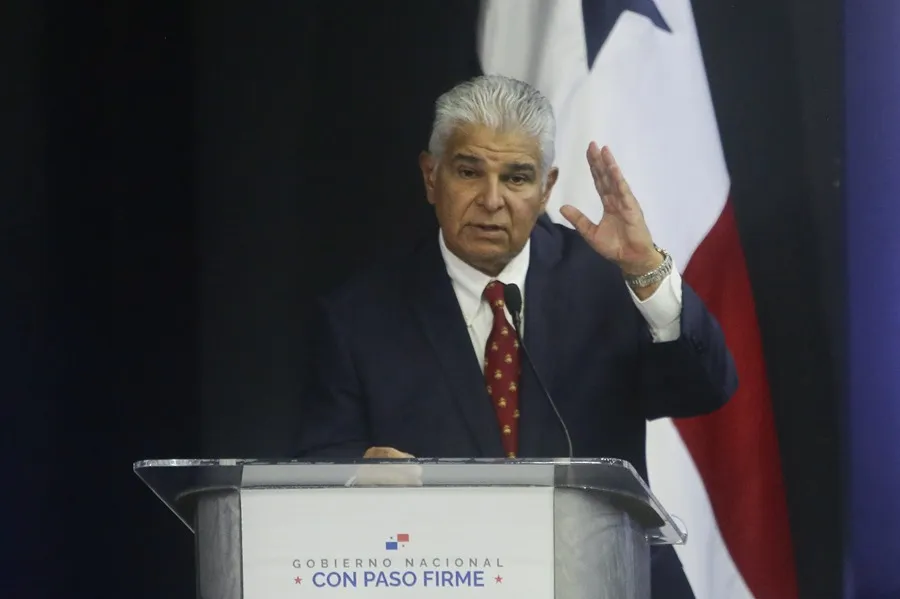
The president of Panama, José Raúl Mulino, warned on Thursday that if the “political situation” of Venezuela “worsens” after this Sunday’s elections, they must be prepared, because the flow of migrants through the Darién, the border jungle with Colombia used as a migratory route, will increase “in a very short time.”
“We are three days away from the solution or the worsening of the political situation in Venezuela. I advocate a democratic solution that respects the will of the people. If that turns out to be the case, I feel that we will have an improvement in the condition, because Venezuela is 66% of migrants. That country contributes a significant share of people to the transit,” the president of Panama said at his weekly press conference.
And he explained: “If the situation (in Venezuela after the elections) improves, it can be deduced that much fewer people will want to venture into that risk of transit through that jungle (of the Darién). If the political situation worsens, in another scenario, let’s prepare because that (the migratory flow) will increase in a very short time.”
According to Mulino, this Sunday’s elections in the South American country “would already be one of the last chances (opportunities) of Venezuela to open up to a democratic and peaceful world (so that) the people (find the) solution that they consider most appropriate.”
Last Thursday – also at that press conference he plans to offer every week – the Panamanian president said that “well-conducted” elections in Venezuela will possibly reduce the flow of migration through the Darién jungle, since most of the passers-by who go through it are from that South American country.
Venezuela will have its elections on July 28, in which ten candidates will participate, including President Nicolás Maduro, who seeks his re-election, and the main leader of the opposition and the polls, Edmundo González Urrutia, instead of the disqualified María Corina Machado.
Panama is trying to reduce migration through that dangerous jungle and since Mulino’s arrival in power, several measures have been taken, such as the installation of “perimeter barriers” (barred fences) in some points of Darién to close unauthorized passages and “channel” the flow, in addition to the signing of an agreement with the United States to return migrants who cross that jungle by plane.
So far this year, more than 216,000 migrants have crossed the dangerous Darién jungle, most of them Venezuelans, who seek to reach the United States or Canada in search of better living conditions, while in all of 2023 there were more than 520,000, an unprecedented figure, according to official data from Panama.
-
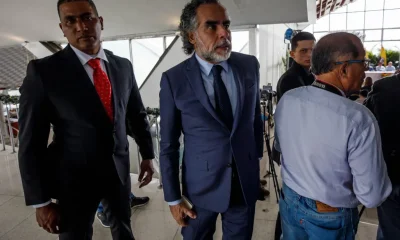
 International2 days ago
International2 days agoColombian Foreign Ministry calls ambassador to FAO Armando Benedetti for prosecution for sexist aggression
-

 International2 days ago
International2 days agoSeven FARC dissidents who were traveling in official vehicles were captured in Colombia
-

 International2 days ago
International2 days agoUkraine is committed to cogeneration and private production to face the winter
-

 International4 days ago
International4 days agoKamala Harris debuts as a presidential candidate and highlights the work of Joe Biden
-

 International2 days ago
International2 days agoPolice arrest 200 people for protesting in Congress against Netanyahu’s visit to the United States
-
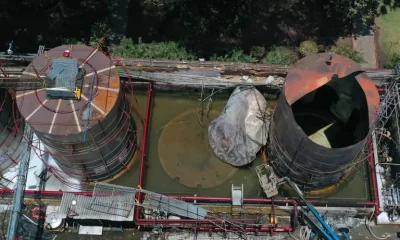
 International2 days ago
International2 days agoA sixth man is found dead after the explosion in a tequila factory in Mexico
-
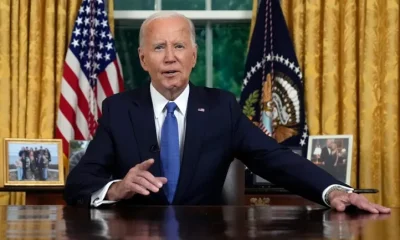
 International2 days ago
International2 days agoBiden says goodbye to the Americans: it’s time to “pass the baton” to save the country
-

 International2 days ago
International2 days agoThe man who tried to kill Trump sought information about Kennedy’s murder
-

 International2 days ago
International2 days agoNegotiations for a ceasefire in Gaza are in their “final phase,” according to the United States
-
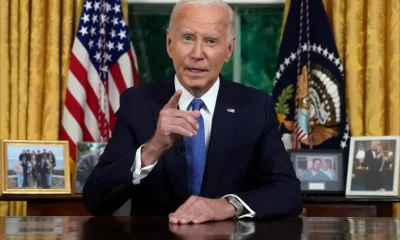
 International2 days ago
International2 days agoBiden promises to work to end the war in Gaza in his remaining mandate
-

 International2 days ago
International2 days agoGonzález Urrutia offers María Corina Machado the position “that she wants” in the eventual government
-
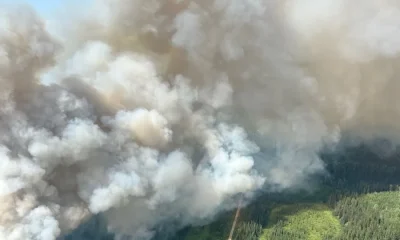
 International13 hours ago
International13 hours agoA forest fire destroys the town of Jasper in the Rocky Mountains of Canada
-
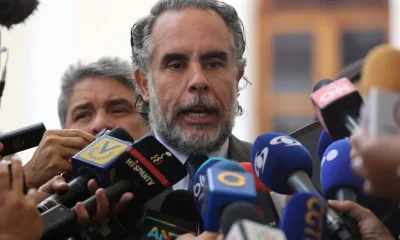
 International2 days ago
International2 days agoThe Colombian Foreign Ministry calls the ambassador to the FAO for a process for sexist aggression
-

 International2 days ago
International2 days agoA Democratic congresswoman carries before Netanyahu a fan that says “war criminal”
-

 International2 days ago
International2 days agoSenator publishes unpublished video of the moments after the attack on Donald Trump
-
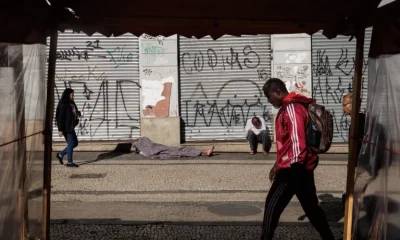
 International2 days ago
International2 days agoHunger in the world remains at high levels for the third consecutive year
-

 International13 hours ago
International13 hours agoTrump and Harris are practically tied, according to a New York Times survey
-
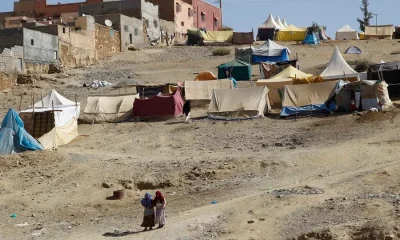
 International3 days ago
International3 days agoMohamed VI of Morocco celebrates 25 years on the throne: reforms and challenges
-

 International2 days ago
International2 days agoNetflix co-founder donates seven million dollars to Kamala Harris’ campaign
-
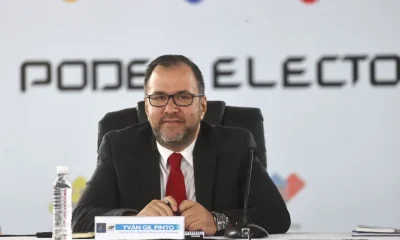
 International2 days ago
International2 days agoVenezuelan government says it will defeat US “neocolonial claims” in elections
-
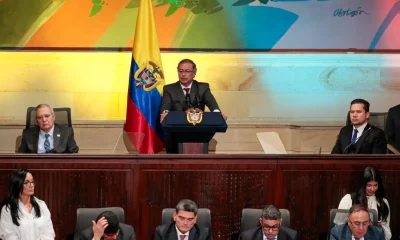
 International13 hours ago
International13 hours agoThe protagonists of the Colombian Government’s Risk Unit scandal
-

 International13 hours ago
International13 hours agoLeaders of the Latin American left warn Maduro on the eve of the elections
-

 International2 days ago
International2 days agoBiden says it’s “fantastic” to return to the White House after being isolated with covid
-
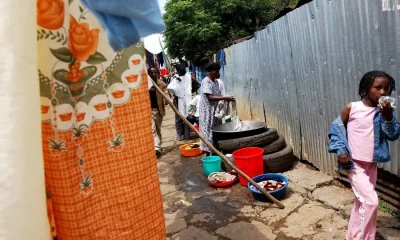
 International3 days ago
International3 days agoAt least 157 dead, including children, in landslides in southern Ethiopia
-

 International13 hours ago
International13 hours agoEdmundo González Urrutia, convinced of his “triumph” in the presidential elections of Venezuela
-
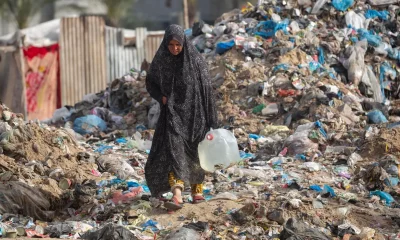
 International3 days ago
International3 days agoWHO, “extremely concerned” about the possible outbreak of a polio outbreak in Gaza
-

 International4 days ago
International4 days agoNancy Pelosi supports Kamala Harris as a candidate for the U.S. Presidency.
-
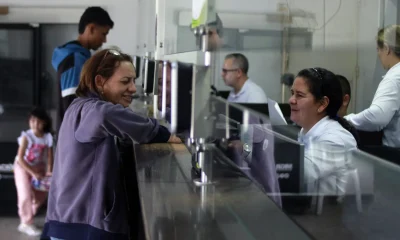
 International3 days ago
International3 days agoMillions of Venezuelans abroad will not be able to vote for government obstacles
-

 International4 days ago
International4 days agoUS Secret Service: The attempted murder of Trump is the “biggest operational failure” in decades
-

 International4 days ago
International4 days agoLula confesses that he was “frared” by Maduro’s threat about “a bloodbath” if he loses
-

 International2 days ago
International2 days agoSenator Menéndez plans to resign in August after being found guilty of corruption in the United States
-
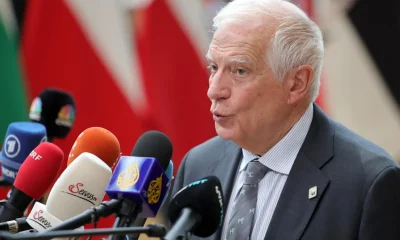
 International4 days ago
International4 days agoBorrell calls for a meeting of ministers in Brussels and not in Budapest in protest of Orbán’s tour
-
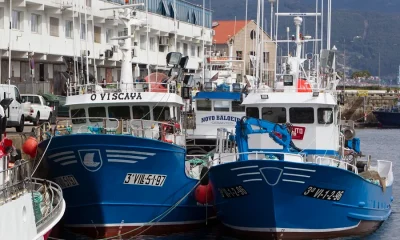
 International3 days ago
International3 days agoAt least three dead in the fishing vessel sunk in the Falkland Islands with Galician crew members
-

 International4 days ago
International4 days agoVance criticizes Harris at his first solo rally: He has no gratitude towards the United States
-
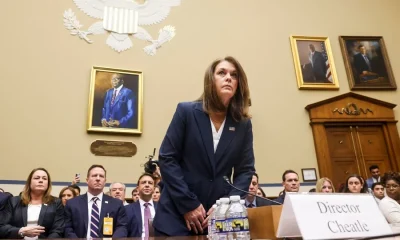
 International3 days ago
International3 days agoThe director of the United States Secret Service resigns after criticism of the attack on Trump
-
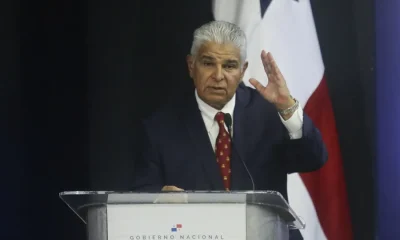
 International13 hours ago
International13 hours agoMulino: If the situation in Venezuela worsens, migration will grow “in a very short time”
-

 International4 days ago
International4 days agoLula wants the best relationship with Argentina, but reiterates that he expects an apology from Milei
-

 International4 days ago
International4 days agoGonzález Urrutia predicts an “overwhelming” opposition victory in the Venezuelan elections












































































